第27章 V(1)
The months flew past. The summer was over: "the pleasantest summer I EVER passed in MY LIFE, and I shall never forget this first summer of my reign."
With surprising rapidity, another summer was upon her. The coronation came and went--a curious dream. The antique, intricate, endless ceremonial worked itself out as best it could, like some machine of gigantic complexity which was a little out of order. The small central figure went through her gyrations. She sat; she walked; she prayed; she carried about an orb that was almost too heavy to hold; the Archbishop of Canterbury came and crushed a ring upon the wrong finger, so that she was ready to cry out with the pain; old Lord Rolle tripped up in his mantle and fell down the steps as he was doing homage; she was taken into a side chapel, where the altar was covered with a table-cloth, sandwiches, and bottles of wine; she perceived Lehzen in an upper box and exchanged a smile with her as she sat, robed and crowned, on the Confessor's throne. "I shall ever remember this day as the PROUDEST of my life," she noted. But the pride was soon merged once more in youth and simplicity. When she returned to Buckingham Palace at last she was not tired; she ran up to her private rooms, doffed her splendours, and gave her dog Dash its evening bath.
Life flowed on again with its accustomed smoothness--though, of course, the smoothness was occasionally disturbed. For one thing, there was the distressing behaviour of Uncle Leopold. The King of the Belgians had not been able to resist attempting to make use of his family position to further his diplomatic ends. But, indeed, why should there be any question of resisting?
Was not such a course of conduct, far from being a temptation, simply "selon les regles?" What were royal marriages for, if they did not enable sovereigns, in spite of the hindrances of constitutions, to control foreign politics? For the highest purposes, of course; that was understood. The Queen of England was his niece--more than that--almost his daughter; his confidential agent was living, in a position of intimate favour, at her court. Surely, in such circumstances, it would be preposterous, it would be positively incorrect, to lose the opportunity of bending to his wishes by means of personal influence, behind the backs of the English Ministers, the foreign policy of England.
He set about the task with becoming precautions. He continued in his letters his admirable advice. Within a few days of her accession, he recommended the young Queen to lay emphasis, on every possible occasion, upon her English birth; to praise the English nation; "the Established Church I also recommend strongly; you cannot, without PLEDGING yourself to anything PARTICULAR, SAY TOO MUCH ON THE SUBJECT." And then "before you decide on anything important I should be glad if you would consult me; this would also have the advantage of giving you time;" nothing was more injurious than to be hurried into wrong decisions unawares. His niece replied at once with all the accustomed warmth of her affection; but she wrote hurriedly--and, perhaps, a trifle vaguely too.
"YOUR advice is always of the GREATEST IMPORTANCE to me," she said.
Had he, possibly, gone too far? He could not be certain; perhaps Victoria HAD been hurried. In any case, he would be careful; he would draw back--"pour mieux sauter" he added to himself with a smile. In his next letters he made no reference to his suggestion of consultations with himself; he merely pointed out the wisdom, in general, of refusing to decide upon important questions off-hand. So far, his advice was taken; and it was noticed that the Queen, when applications were made to her, rarely gave an immediate answer. Even with Lord Melbourne, it was the same; when he asked for her opinion upon any subject, she would reply that she would think it over, and tell him her conclusions next day.
King Leopold's counsels continued. The Princess de Lieven, he said, was a dangerous woman; there was reason to think that she would make attempts to pry into what did not concern her, let Victoria beware. "A rule which I cannot sufficiently recommend is NEVER TO PERMIT people to speak on subjects concerning yourself or your affairs, without you having yourself desired them to do so." Should such a thing occur, "change the conversation, and make the individual feel that he has made a mistake." This piece of advice was also taken; for it fell out as the King had predicted. Madame de Lieven sought an audience, and appeared to be verging towards confidential topics; whereupon the Queen, becoming slightly embarrassed, talked of nothing but commonplaces.
The individual felt that she had made a mistake.
The King's next warning was remarkable. Letters, he pointed out, are almost invariably read in the post. This was inconvenient, no doubt; but the fact, once properly grasped, was not without its advantages. "I will give you an example: we are still plagued by Prussia concerning those fortresses; now to tell the Prussian Government many things, which we SHOULD NOT LIKE to tell them officially, the Minister is going to write a despatch to our man at Berlin, sending it BY POST; the Prussians ARE SURE to read it, and to learn in this way what we wish them to hear. Analogous circumstances might very probably occur in England. I tell you the TRICK," wrote His Majesty, "that you should be able to guard against it." Such were the subtleties of constitutional sovereignty.